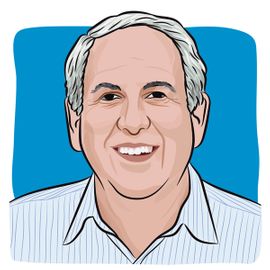- About Us
- Advertise / Support
- Editorial Board
- Contact Us
- CancerNetwork.com
- TargetedOnc.com
- OncLive.com
- OncNursingNews.com
- Terms & Conditions
- Privacy
- Do Not Sell My Information
- Washington My Health My Data
© 2025 MJH Life Sciences™ and CURE - Oncology & Cancer News for Patients & Caregivers. All rights reserved.
Five Things You Must Do at Your Next Oncology Follow-Up

William Ramshaw resides in the expansive Pacific Northwest. He is a six-year survivor of pancreatic cancer and has written a memoir Gut Punched! Facing Pancreatic Cancer.
A cancer survivor shares tips for getting through dreaded follow-up appointments that may lead to anxiety.
I am not sure, but I bet you find your oncology follow-up appointments a bit scary if not terrifying. Having survived pancreatic cancer for seven years, where many don’t see two and few see five, I have come to accept these things as part of my routine to hold my cancer at bay and perhaps see a few more years. And other than more grand-dogs, I hope to maybe see a grandkid or two.
Much like sitting in a courtroom waiting for the black-robed judge to arrive to pronounce my sentence, I have found sitting in one of those beige all-too-sterile exam rooms waiting for my oncologist beyond terrifying. Will she say, “Your scans look great!” Or a foreboding, “We saw something unusual and need to run some more tests.”
To help me deal with the dread of these follow-ups I do five things to get through them.
Brace for the worst.
Back in my Navy days, we used to run a drill called “Brace for shock,” meaning the ship was about to take an incoming missile. It’s not anything any sailor wanted to think about, but it was part of our training. Waiting and waiting for them to come in and let you know if things are OK, or if you’ll be back in “active” treatment has become part of my life. While I’m an optimist by nature, I always know this could be the day. Hence, I brace for the worst and thus I am happy to hear the good news I remain cancer-free.
Connect with your oncologist.
Let’s face it. Most of us look forward to seeing them about as much as we look forward to being leaned back in our dentist’s chair. It’s not something we relish but rather something we tolerate. I imagine they find no joy in telling someone they’re stage 4. Worse, this must wear on the human side of them. Hence, I always ask how they’re doing. Not to invade their privacy, but I ask them about their families too. Much as we face challenges, they have challenges too. If they see you as a friend rather than just another patient, I’m betting they’ll go the extra mile or perhaps run a marathon for you. Connect with your oncologist.
Take charge of “your” appointment.
Rather than let them take charge of “your” appointment, take the time to write down what has happened since you last saw them and brief them on the high points rather than robotically responding to their series of questions. Much like a date where one person does all the talking, if we do not participate the outcome may be less than optimal. Besides improving the outcome, this shows we are involved in our care rather than expecting our doctor to carry us through the appointment. Your brief should be at max a 1-minute summary of key things that happened since you last saw them. I jot these down on a scrap of paper to make sure I don’t forget anything. Things like, “Did I visit another doctor about a health issue?” are helpful. “Have I noticed anything unusual?” “How am I dealing with my life?” The stress of cancer impacts every aspect of our lives, not just our health. Remember you live with yourself 24/7. Your doctor or their nurse practitioner sees you for perhaps a few minutes once or twice a year. Take charge of “your” appointment.
Write your questions down.
With minutes to talk to your overworked and often under-appreciated cancer specialist, I’ve found it helps for me to write my questions down ahead of time. Like most, I think I can remember everything, but when I don’t write my questions down, I almost always forget something. On my way out to my car, I hate it when I say under my breath, “Shoot, I forgot to ask…!” Write your questions down.
Ask about the next steps.
While this might seem obvious, it is not. Do they want to see you again in six months or a year? Is there anything they might recommend you do to improve your chances of holding your cancer at bay? Ask about the next steps.
Seeing our oncologists for a follow-up does not need to be something we tolerate but rather something we look forward to. As a key member of our health team, they have a wealth of knowledge about cancer and what we can do to stay cancer-free. To get the most out of your next appointment, brace for the worst, connect with them, take charge of “your” appointment, write down your questions and ask about the next steps.
For more news on cancer updates, research and education, don’t forget to subscribe to CURE®’s newsletters here.
Related Content:



